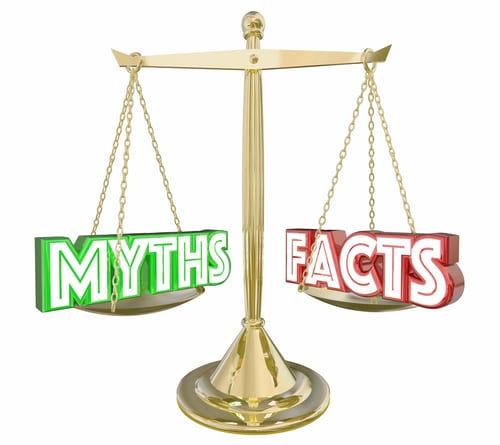
There are several misconceptions about the Praxis exams that are circulating around. As you prepare for the exam, it’s important to know the common Praxis myths and the truth behind them. That way you can have accurate information. Here are 5 Praxis myths debunked for you.
Myth #1: There Is Only 1 Praxis Exam for All Teaching Professions.
Although some people believe there is only one Praxis exam for all teaching professionals, the truth is that there are 140 different exams. These exams cover over 70 different subject areas. Praxis I exams cover the basic academic skills in reading, writing, and math. And the Praxis II exams cover various subject areas, including Business Education, Economics, Music, and Sociology.
Myth #2: It Isn’t Necessary to Review the Content before Taking the Praxis Exams.
The exams were created to assess teacher candidates’ knowledge and skills. In that way, you might feel like you have all of the information that you need for the exam. However, you’ll find that it’s wise to spend time reviewing the subject matter before taking the exam. The exams meet the standards for Educational and Psychological Testing created by the AERA, APA, and the NCME. In order to meet the standards, you should take the time to review the content needed to meet these standards and ace the exam.
Myth #3: The Praxis Is Only for Individuals Who Complete a Bachelor’s Degree.
You don’t have to complete a bachelor’s degree in order to become a licensed teacher. For people who choose to take these alternative routes, they still need to pass the exam if that’s one of the requirements for licensure in their state.
Myth #4: The Praxis Exams Are Outdated.
The Praxis exams are created by ETS (Educational Testing Service). The organization regularly evaluates and updates the exam standards and contents. They rely on help from practicing professionals in order to keep these standards current and based on the most current research in each field.
Myth #5: ETS Sets the Passing Scores for Each Exam.
ETS may be the organization that creates the exam, but they don’t determine the passing score that you need to receive. In fact, each state determines the scores needed to pass the exam and receive licensure in their state.
As you study for a Praxis exam, it’s important to learn as much as you can about it. Knowing about the exam that you’re taking will help you prepare and feel confident in your ability to pass the exam. Part of this includes knowing the truth between the common Praxis myths. For more information about your particular exam, check out the information on the ETS website.




